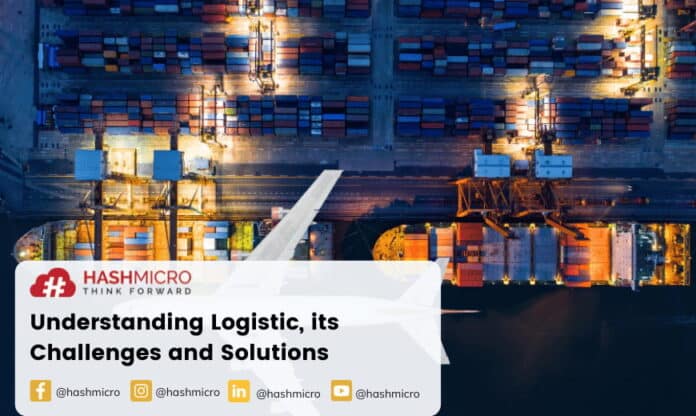Starting with cloud-based systems to Transportation Management, the state of the logistics industry is evolving and expanding its services more and more. While this initial view of the logistics and freight industry may seem trivial, it shows how the flow of goods and services is growing and delivering more with fewer resources. The following is logistics definition:

Table of Contents
Logistics definition, and why is it important?

Logistics refers to the overall process of managing how resources are acquired, stored, and transported to their final destination. It involves identifying potential distributors and suppliers and determining their effectiveness and accessibility.
Even though the company puts a lot of effort into production activities to meet the needs of the customers, if the product cannot reach them, then the business will be in big trouble. This can reduce customer satisfaction, as well as have a negative impact on profitability and business continuity in the long term.
Common challenges in logistics
Fuel cost
One of the highest costs that contribute to shipping costs is the price of fuel. Increasingly expensive fuel prices and inflation are factors that increase transportation costs.
Delivery transparency
Customers want full transparency to their place of delivery at all times. In fact, consumers also ask for services that can be tailored to their needs in terms of service packages and prices.
Relationship with vendors
The relationship between vendors or suppliers with logistics companies is a challenge that the company must handle properly. One way is to standardize the work agreed upon by both parties.
Benefits of the logistics system for companies
Route optimization
The logistics system makes it easy for freight forwarders to take advantage of the most efficient route and tour configuration. Previously, businesses often had problems with a lack of insight into how changing shipping routes could affect their results. The system offered a new level of certainty when choosing the optimal path.
Logistics is a company activity that helps in the distribution of goods. Through intralogistics, the transportation of goods is carried out from the company to suppliers or consumers. Logistics may be a means for the transportation of goods, but the meaning of logistics is not only transportation.
Improve distribution efficiency

Increasing the efficiency of logistics and transportation, both inbound and outbound, must always be a top priority for every logistics organization. To do so, businesses need to develop cost-effective transportation fares while, at the same time, reducing overhead, cost-per-order processing, and inventory. By working with a transport provider, it can improve warehouse operations processes, layout, and flow.
Generally, distribution includes the management of the flow of goods and transportation management. An ERP system provides a solution to manage distribution effectively by gathering all useful information to improve the handling and delivery of products at the distribution center and ensure the goods arrive on time.
Quick response
Customer satisfaction has an important role in the overall success of a logistics company. To meet customer service goals, consider a quick response as a strategy. Thanks to today’s technology, you can eliminate excess inventory that would normally be stockpiled in anticipation of customer needs.
Conclusion
Logistics Management System activities require a good system that can efficiently improve transportation development. Since transportation accounts for the highest cost among related elements in the logistics system, increasing transportation efficiency can change the overall performance of the logistics system. Thus, without a good understanding of logistics, company operations cannot run optimally. Schedule a free demo now to experience the transformational power it brings to your operations.


































